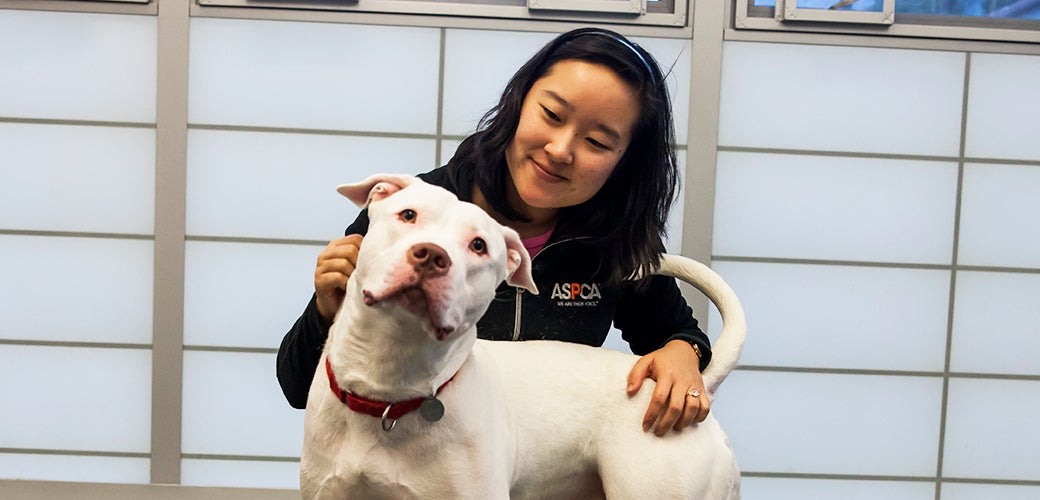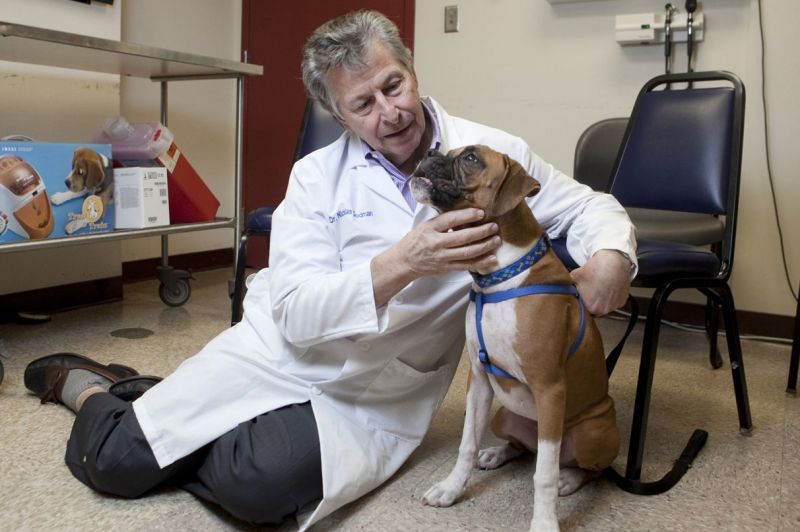Understanding the Function of a Vet Behaviourist in Animal Training and Wellness
The function of a veterinary behaviourist is important in dealing with the complex connection between family pets and their proprietors. They integrate veterinary medication with insights from animal behavior scientific research to take on problems like aggression and anxiety. Unlike standard trainers, their strategy concentrates on the underlying sources of these habits. This nuanced perspective elevates questions concerning the efficiency of conventional training techniques and how a much deeper understanding can transform pet health. What methods do they employ to attain these outcomes?
What Is a Veterinary Behaviourist?
A vet behaviourist is a customized specialist who concentrates on understanding and addressing the behavior problems of pets, specifically pet dogs. Their expertise incorporates veterinary medication and pet behavior science, allowing them to diagnose and treat a vast array of behavior problems - canine behaviourist near me. These experts frequently hold sophisticated levels, such as a Master's or PhD in animal behavior, and are accredited by pertinent companies, ensuring they possess a deep understanding of pet psychology
Veterinary behaviourists examine pets through thorough observation and evaluation, considering variables such as genetics, atmosphere, and training background. They establish tailored therapy plans, which might consist of desensitization strategies, favorable reinforcement techniques, and environmental changes. Collaboration with animal owners is crucial, as they provide assistance and support throughout the training process. Ultimately, the goal of a veterinary behaviourist is to improve the wellness of the pet while fostering a harmonious connection between animals and their proprietors.
The Relevance of Understanding Animal Behavior
Understanding animal habits is important for both pet dog proprietors and experts in the area of pet care, as it lays the structure for effective communication and training. Acknowledging just how pets view their environment and respond to stimulations makes it possible for caretakers to produce a more unified living scenario. Insight into behavior hints, such as body language and vocalizations, cultivates stronger bonds between pet dogs and their proprietors. By appreciating the natural reactions and requirements of different species, people can tailor their training approaches to accommodate these variables, advertising much better discovering and teamwork. Furthermore, a solid understanding of behavior science aids in recognizing stressors and possible triggers, enabling proactive treatments. In general, understanding pet behavior not just enhances the health of animals but likewise enriches the experiences of those that take care of them, inevitably causing healthier, better relationships.
Common Behavioral Issues Resolved by Veterinary Behaviourists
Vet behaviourists frequently address typical behavioral problems in animals, consisting of hostility and fear feedbacks. They likewise concentrate on anxiety and anxiety management, which can substantially affect a pet's well-being. Comprehending these concerns is vital for developing reliable training and intervention methods.
Aggressiveness and Worry Actions
While several pet owners might watch aggression and worry actions as simple behavioral problems, these complicated responses usually stem from underlying stress and anxiety or past injury. Vet behaviourists play an essential role in determining the origin triggers of these actions, which can show up in numerous kinds, consisting of growling, attacking, or excessive fear of certain situations. Comprehending these triggers is crucial for creating reliable training methods customized to every pet dog's distinct situations. Behaviourists employ methods such as desensitization and counter-conditioning to help animals manage their fears and aggression. Additionally, they enlighten pet dog proprietors regarding proper administration techniques, emphasizing the importance of perseverance and uniformity. Resolving aggressiveness and anxiety responses not only improves the pet's quality of life but also strengthens the bond between pet dog and proprietor.
Anxiousness and Stress Administration
Anxiousness and tension prevail concerns that lots of pet dogs face, often resulting from changes in their atmosphere, lack of socialization, or previous negative experiences. Veterinary behaviourists play a crucial role in recognizing the underlying sources of these problems. They employ numerous methods, consisting of behavior modification, desensitization, and counter-conditioning, to aid animals take care of stress and anxiety. In addition, they might recommend ecological changes, such as developing safe rooms or offering enrichment tasks that promote leisure. Partnership with pet dog owners is crucial, as behaviourists lead them in comprehending their pet dog's signals and executing reliable coping techniques. By resolving anxiety and anxiety, veterinary behaviourists contribute considerably to improving the general health and quality of life for family pets and their families.
Exactly How Vet Behaviourists Vary From Conventional Fitness Instructors
Vet behaviourists vary from conventional instructors primarily in their academic histories and training. While typical trainers commonly concentrate on obedience and basic commands, veterinary behaviourists highlight understanding and addressing underlying behavioral problems, integrating clinical factors to consider right into their approach. This unique focus enables them to supply a more complete treatment for family pets with intricate behavior obstacles.
Education And Learning and Training Differences
Understanding the distinction in between vet behaviourists and traditional trainers is important for family pet proprietors looking for efficient training options. Veterinary behaviourists possess postgraduate degrees in veterinary medicine, often followed by specialized training in pet practices. This education and learning outfits them to attend to complicated behavioral problems that might come from medical conditions or emotional aspects. On the other hand, standard trainers commonly have qualifications from training programs that concentrate on obedience and fundamental commands without diving right into the underlying emotional or medical aspects. While both professionals aim to enhance pet dog behavior, veterinary behaviourists can detect and deal with behavioral problems holistically, integrating medical understanding into training strategies. This essential difference highlights the relevance of picking the best professional based upon the family pet's specific needs.
Concentrate On Behavioral Issues
Resolving behavioural concerns needs a nuanced approach that identifies veterinary behaviourists from typical fitness instructors. While traditional instructors typically concentrate on obedience and fundamental commands, veterinary behaviourists check out much deeper into the underlying reasons of troublesome practices. They utilize a considerable understanding of pet psychology and therapy methods, which are rooted in scientific research study. This proficiency enables them to determine issues stemming from anxiety, anxiety, or aggression, instead than merely attending to surface-level symptoms. Additionally, vet behaviourists assess the family pet's total health, considering ecological variables and the animal's history. By incorporating clinical knowledge with behavioural methods, they give tailored services that promote lasting behavioral change, guaranteeing both the family pet's and proprietor's top quality of life are markedly improved.
Medical Considerations Consisted Of
While standard instructors might forget hidden clinical issues, veterinary behaviourists prioritize a comprehensive evaluation of a family pet's health and wellness as a fundamental action in attending to behavioral issues. This strategy permits them to determine prospective clinical conditions that may add to unfavorable behaviors, such as stress and anxiety, pain, or neurological disorders. By integrating medical evaluations into their practice, vet behaviourists can team up with vets to ensure an alternative understanding of the family pet's wellness. Furthermore, they can recommend appropriate therapies or changes to training strategies based on medical searchings for. This considerable viewpoint differentiates veterinary behaviourists from traditional instructors, as they resolve both behavioural and more information health-related variables, ultimately leading to more effective and sustainable outcomes for family pets and their owners.

The Process of Working With a Veterinary Behaviourist
Collaborating with a vet behaviourist entails a systematic technique to dealing with a pet's behavioral issues. The procedure starts with an extensive evaluation, where the behaviourist collects thorough information about the family pet's background, setting, and specific behaviors that are troublesome. This typically includes questionnaires, interviews with the family pet proprietor, and occasionally observations of the pet in its atmosphere.
Complying with the evaluation, the vet behaviourist creates a customized treatment plan that may include behavioral alteration strategies, training strategies, and, if required, suggestions for clinical evaluations. dog behaviourist near me. The strategy is created to be sensible and achievable, making sure that it fits flawlessly into the family pet owner's way of life
Subsequent follow-up sessions are vital to monitor progress, change strategies, and provide assistance. This collective effort not only intends to customize undesirable habits but also to enhance the total well-being of the family pet, making sure a harmonious partnership between the pet and its owner.
Enhancing Your Family pet's Lifestyle With Behavioral Assistance
Enhancing a pet dog's web quality of life through behavior support is vital for promoting a healthy and balanced and satisfying partnership between pet dogs and their owners (cat behaviourist near me). Veterinary behaviourists play a crucial role in determining and resolving behavioral problems that might hinder a family pet's well-being. With customized strategies, they assist alleviate stress and anxiety, anxiety, and aggression, eventually advertising an extra balanced and delighted pet
Behavioral assistance incorporates various methods, consisting of favorable reinforcement, environmental enrichment, and socializing. By executing these methods, proprietors can develop a nurturing environment that encourages positive habits. This not just boosts the pet dog's emotional health however likewise enhances the bond in between pet dog and owner.
Additionally, regular assessments with a vet behaviourist warranty that any kind of arising behavior problems are promptly attended to, protecting against rise. Overall, investing in behavioral support is a positive strategy that greatly enriches an animal's life, causing boosted physical and psychological health outcomes.
Regularly Asked Questions
What Certifications Do Veterinary Behaviourists Possess?
Veterinary behaviourists typically hold a vet level, followed by specialized training in pet actions. Lots of also have accreditations from identified companies, demonstrating their competence in dealing with animal actions issues and promoting general pet well-being.
Can Veterinary Behaviourists Prescribe Medicine for Animals?


Veterinary behaviourists, possessing veterinary levels and specialized training, can without a doubt suggest medicine for animals. This capability enables them to address underlying behavior concerns successfully, often incorporating medicinal treatment with behavior adjustment strategies for ideal end results.
Exactly How Lengthy Does Behavior Modification Generally Take?
Behavior therapy duration varies substantially, usually varying from a few weeks to numerous months. Aspects influencing this timeline official statement consist of the family pet's certain issues, consistency of training, and the proprietor's involvement while doing so.
Are Remote Assessments Available With Vet Behaviourists?

Just how Much Does a Veterinary Behaviourist Consultation Expense?
The cost of a vet behaviourist assessment generally varies from $100 to $300, depending upon factors such as place, experience, and session length. Added fees might apply for follow-up appointments or specialized services.